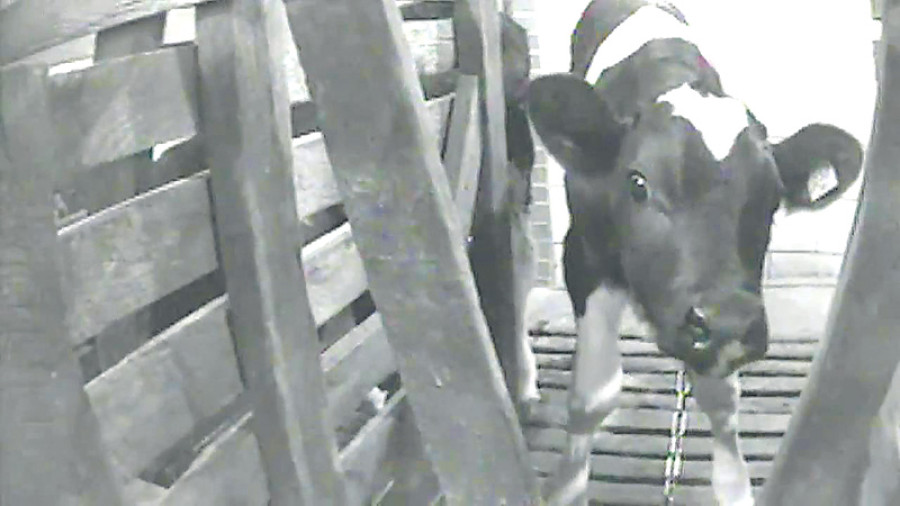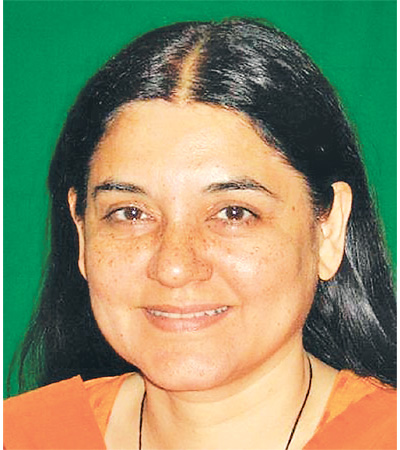Opinion
Health first
Human health is intrinsically tied to what we eat: Our meat has to be grown better
Maneka Sanjay Gandhi
California has a very interesting political system. This allows organisations and individuals to bypass politicians and put potential laws directly to a vote by the general population—as long as they can get enough signatures to support the measure in the first place. This makes sense to me, because, in India, we are at the mercy of politicians who will rarely do anything that is of public interest, or even think about issues that affect people adversely and need to be corrected. Instead, they will come up with grandiose schemes that never get implemented and, even if they did, are so poorly conceived that they destroy far more—the damming and linking of rivers, the badly conceived feeding of children that has led to widespread malnourishment, the giving of forests to supposed tribal groups without verification, the lack of maintenance of heritage sites and complete ignorance of the value of museums, the lack of a trained teaching system for farmers, and using a defunct system called Krishi Vigyan Kendras … I can think of a million ill-conceived things. The reckless import and use of pesticides and urea is at the top of my list, along with the export of meat, as that is destroying the country’s forests and water systems.
The slaughterhouse export trade is run by NRIs and foreign nationals who loot India. Also on my list is the agriculture ministry’s refusal to even see that the animals, fish and birds grown for meat that are kept badly; injected with hormones, pesticides and antibiotics that could make the human population ill upon consumption.
So many people campaigned for the NOTA—None Of The Above—option to be included on the ballot paper. It has resulted in nothing. No one makes the trek to a booth to not vote. They stay at home if they don’t like any of the candidates. There is a movement, which comes in fits and starts, on the right to recall an elected person. This will result in mayhem if it ever happens, because anyone who loses an election will spend a lot of money getting signatures. Then there is the movement that women should get one third of the seats by law. None of these movements actually will bring about change to make governance participatory.
Going to California
What is needed is what California is doing. Even if we go halfway on their idea, and force discussions in Parliament and state assemblies on any issues that receive a certain mandated number of public signatures, then our politicians will have to show us where they stand on such issues.
Currently, California voters are on the streets for an issue we have been fighting here for some years, (both in the ministries and courts): to change the factory farm system so that animals, grown for meat, are not caged for their entire lives.
Is this an issue for just “animal lovers” as we are called? No. It is an issue of health that should be understood and pushed with your local Member of Legislative Assembly, Member of Parliament and municipal chairman. Birds, pigs, cattle—especially poultry—are stuffed into small cages. The birds cannot even raise their wings, so small is the space and so large the number of birds in each cage. To prevent them from fighting for space, poultry owners cut off their beaks and toes without anaesthesia. They cannot stand without pain but there is no space to sit. They stand in their own faeces, covered with mites that suck their blood. They get very, very sick immediately and are then kept alive with antibiotics, hormones and pesticides. All these go into the meat when the bird is killed and has created major sickness in humans, starting with the superbug which is untreatable, and going on to cancer, epilepsy, kidney failure and every other major disease. This could all be prevented if the birds were allowed to roam freely in the sun with natural food (instead of spoilt grain, cardboard, the dead bodies of fellow chickens and marble mixed with veterinary drugs), given fresh sources of water and allowed to live naturally before being killed. It takes the same space that the poultry now has.
The same problem is with piggeries. The pig is an intelligent and emotional animal. Locking her up in a small crate and feeding her badly with disgusting restaurant waste, inseminating her forcibly and then taking away the babies makes her very sick. She gets worms, serious illnesses, and all these are passed on to pork consumers. Veal comes from baby calves that are locked into tight crates so that they cannot move and then starved to death so that they become anaemic and their meat turns white. They are killed within 18 to 20 weeks of their birth.
Cages no more
In California, hundreds of volunteers are on the street going from door to door trying to reach the mandatory 365,000 signatures. They have, by law, a finite time to collect the signatures. Some of the activists eat meat. They simply don’t want to be sick from it. The new law, if it comes into being, will ban the sale of all eggs, pork or veal from a caged animal—if campaigners can get enough signatures. If passed, it would be the most progressive farm animal welfare law and also the most progressive human health law in the world.
The new measure would ban cages of any kind for hens, gestation crates for mother pigs, and veal crates for calves. By the end of 2019 all hens would have to be cage-free—living, at minimum, on an open barn floor or in an indoor aviary with multiple levels for birds to go up and down.
It would have national implications, applying not just to in-state famers but to any farmer doing business with the world’s sixth largest economy.
The deadline is May 1st and they have 200,000 signatures so far. This is history in the making. It will put California ahead of the European Union, which banned battery cages for poultry in 2012 across Europe—and even cage-free leaders such as Germany and the Netherlands.
In 2008, California passed Proposition 2, which banned battery cages and said animals must have space to turn around, lie down and stretch their limbs. In 2016, Massachusetts made history with the first sales ban on products from confined animals, which passed by a landslide 78 percent. California is now working to top that.
And India? Sigh. Committee after committee has been formed by different regulatory authorities. Each one agrees that something has to be done. Yet, each time, they pass it on to another committee. There is no political will and, in the absence of a clear order, no bureaucrat will move. On top of that, there are slaughterhouse lobbies that will pay bureaucrats and politicians not to change the filthy, unhealthy status quo. I wish politicians would put human health on the top of their agenda—everything else would fall into place.
To join the animal welfare movement contact [email protected], www.peopleforanimalsindia.org




 25.15°C Kathmandu
25.15°C Kathmandu





.jpg&w=200&height=120)





